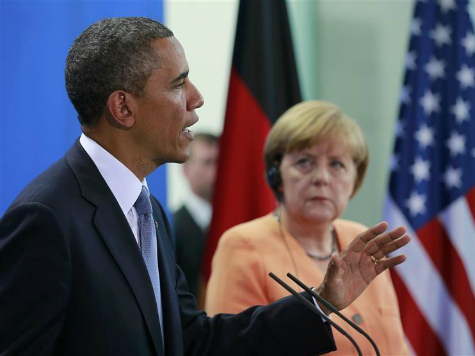Germany is to scupper a free trade agreement between the European Union and Canada because the clauses giving legal protection to investors would give them too much power, according to a report in a leading Germany newspaper.
The Canada deal is considered a template for the United States-EU free trade agreement, the Transatlantic Trade and Investment Partnership (TTIP), which is still under negotiation. If Germany rejects the Canada agreement, then the American deal looks likely to fail, too.
A senior European Commission official in Brussels told the Sueddeutsche Zeitung: “The free trade treaty with Canada is a test for the agreement with the United States.” If the one with Canada is rejected, “then the one with the United States is also dead.”
German diplomats in Brussels confirmed to the newspaper that the Berlin government would not sign the agreement “as it has been negotiated now.” The chapter on legal protection for investors is “problematic.”
This is likely to refer to the text of an “investment chapter” leaked in February by the Trade Justice Network and reported by Euractiv which indicated that “multinationals will have wide-ranging powers to sue EU states that enact health or environmental laws breaching their ‘legitimate expectations’ of profit.”
According to Euractiv, the Canada-EU investment chapter proposes a definition of the kind of “fair and equitable treatment” for investors which has sparked multi-million dollar lawsuits, such as one by Lone Pine Resources, a company incorporated in the American state of Delaware, which challenged a shale drilling ban by the Canadian state of Quebec.
Lone Pine sued under a provision of the North American Free Trade Agreement (Nafta) after Quebec called a moratorium on hydraulic fracking after the American company had spent millions of dollars to obtain exploration permits.
Pia Eberhardt, a spokeswoman for the Corporate Europe Observatory campaign group which tracks lobbying in Brussels, told EurActiv that, as the text stands: “Canadian investors will be able to use the excessive corporate rights in CETA [Canada- EU trade agreement] to sue European governments for millions of Euros in compensation for legislation to protect the public interest. And US companies with a subsidiary in Canada will be able to do the same.”
Asked by Reuters about the report that Germany would reject the Canada deal, a spokesman for Germany’s Economy Ministry referred to correspondence from Deputy Economy Minister Stefan Kapferer which outlined Germany’s concerns about investor protection in talks with both countries: “The German government does not view as necessary stipulations on investor protection, including on arbitration cases between investors and the state with states that guarantee a resilient legal system and sufficient legal protection from independent national courts.”
In June Kapferer took a similar position on investor protection clauses in the TTIP agreement with the US.
EU officials insist that without these clauses, companies from Canada – and, it follows, from America — will not invest in Europe.

COMMENTS
Please let us know if you're having issues with commenting.